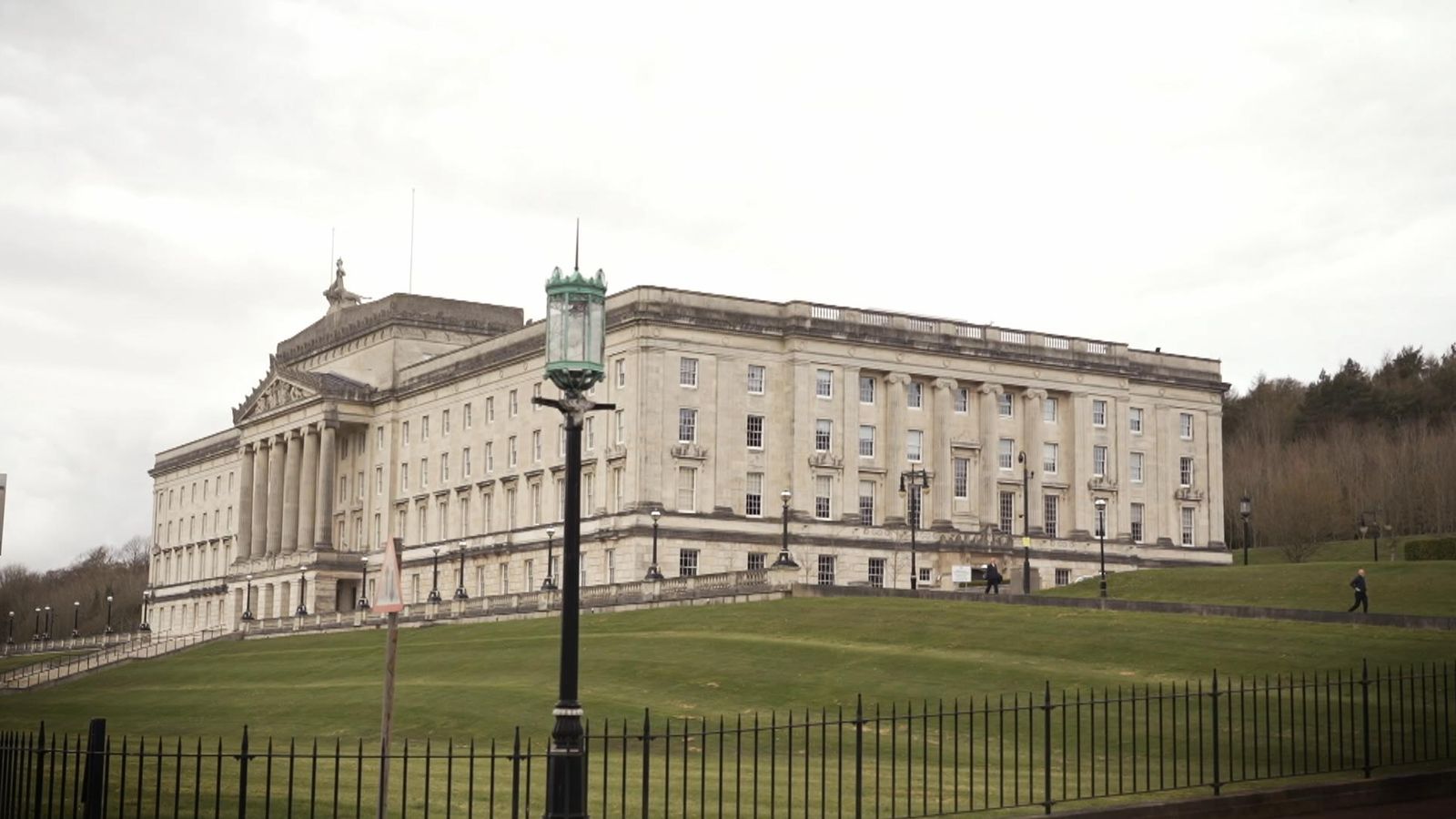The UK government is tabling legislation to end post-Brexit checks on goods moving between Great Britain and Northern Ireland.
Significantly, the Withdrawal Act will also be amended, meaning EU law will no longer apply automatically in Northern Ireland.
The details are contained in a government document which effectively details the deal to restore power-sharing at Stormont.
The 80-page document comes in three parts: one setting out changes to the law and their impact, an annex on the constitutional context, and a second annex on additional measures to strengthen Northern Ireland’s place in the UK.
Those measures include an East-West Council, a new trade body and one UK cabinet meeting in Northern Ireland annually.
The changes will have an impact on the Windsor Framework, the deal Rishi Sunak did with the European Union.
But sources close to negotiations say they “will come as no surprise” to Brussels, which has been kept informed.
Words like “flexibility” and “pragmatism” are being used a lot by players on all sides, “conversations have produced trust”.
The legal changes reflect what has been described as “the democratic deficit”, giving Stormont a greater role in scrutiny.
That strengthens the DUP’s argument for a restoration of the power-sharing government at the heart of the peace process.
The document, titled safeguarding the union, sets out the government’s intentions of what it wants to achieve in Northern Ireland, which has been without government since 2022.
The DUP had collapsed power-sharing at Stormont in protest against post-Brexit trade arrangements.
Following the publication of the government document, DUP leader Sir Jeffrey Donaldson said the automatic appliance of EU laws to Northern Ireland would end.
Northern Ireland power-sharing deal could finally end Brexit’s constitutional chaos
Rabbit out of the hat takes us even closer to restoration of power-sharing in Northern Ireland
DUP ‘in position’ to return to Stormont – if government sticks to its word
“At the moment EU law automatically applies to Northern Ireland, whether it is a change to EU law or a new EU law,” he said.
“Under the protocol we had no say, the Assembly was not consulted on that, there was no democratic scrutiny in Northern Ireland of those laws, they just automatically applied. These new arrangements end that.
“Article 7A of the Withdrawal Act, which is a UK law, will be amended to end the automatic pipeline of EU law applying to Northern Ireland. What that means, we will have new democratic scrutiny mechanisms in the Assembly.
“The Assembly will be able to scrutinise any new laws that are coming forward. Assembly members will be able to say if they think that law is going to be harmful to Northern Ireland and our ability to trade, in other words divergence.
“The Assembly will be able to say no, that law should not apply in Northern Ireland and the UK Government has the right to veto that law on behalf of Northern Ireland.
“There is a new process that is being put in place that ends the dynamic alignment of EU law in Northern Ireland.”






















